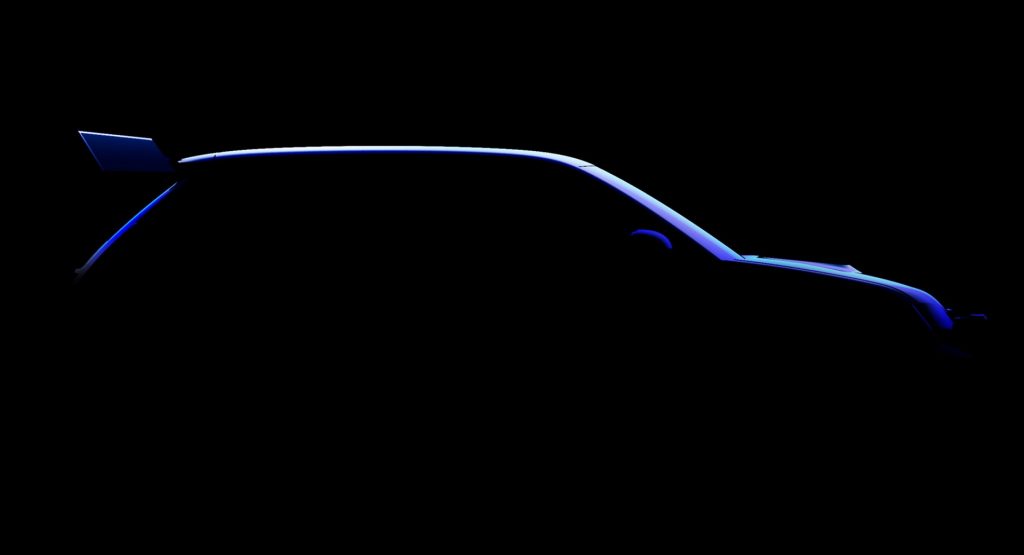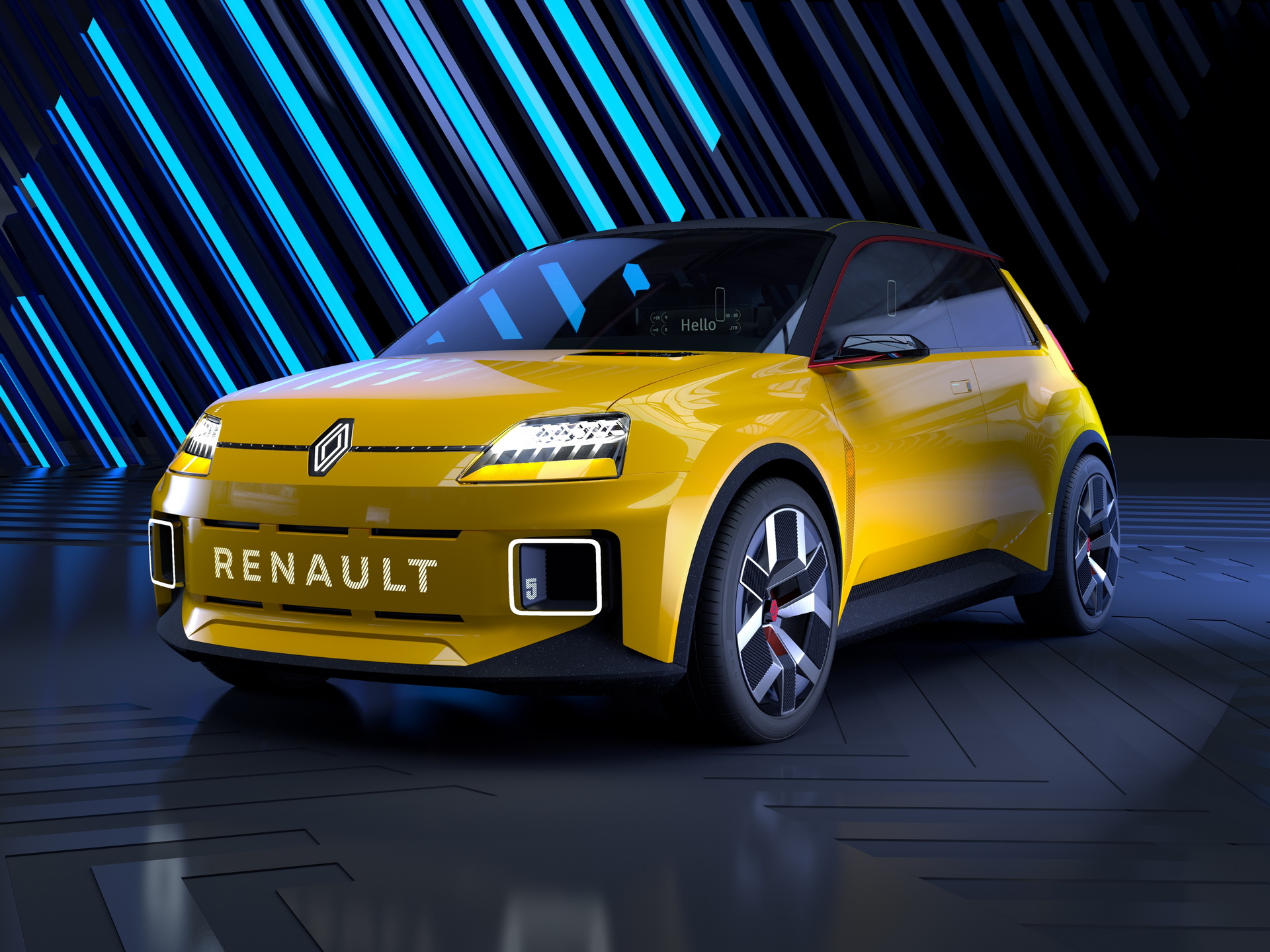Last month, Alpine teased us with a trio of outlines meant to preview its upcoming electric lineup. At the time, we suspected that the hatchback in the group might be a take on the Renault 5 EV and this has now been confirmed.
“One of the dream garage will be a derivative of the R5,” Gilles le Borgne, executive vice president of engineering at the Renault Group, told Auto Express. When asked if the car might use the electric drivetrain from the upcoming Megane E-Tech Electric crossover, he said yes.
Set to debut at the Munich Motor Show this fall, the Megane E-Tech Electric is based on the CMF-EV platform and will have a 60 kWh battery pack, make 215 hp (160 kW / 218 PS), and go 280 miles (450 km) on a single charge.
Read Also: Alpine Previews Fully-Electric Grand Tourer, Hot Hatch And A110 Coupe Successor
Le Borgne said that the Alpine version of the Renault 5 will buck the industry trend of putting electric motors at the rear and will embrace the French tradition of powering the front wheels instead. His initial prediction is that the car will reach 62 mph (100 km/h) in around six seconds.
The hot hatch will also have wider tracks that will improve handling and will help it look sportier than the stock model. The good news for fans of fast hatchbacks is that the CMF-EV platform is related to the CMF-B platform that forms the basis of the current Clio, which has a hot version courtesy of RenaultSport.
Although le Borgne didn’t mention any model names for the Alpine SUV that was promised in June, he did say that the bigger sporty EV could get another motor to spice it up a bit.
“For the CMF-EV platform we will keep the 215bhp e-motor in the front,” he told Auto Express, “and in the rear, we will have a big surprise. We want to do torque vectoring, have really amazing handling and performance—as you can imagine for an Alpine. We are working on that.”
Nevertheless, he was clear that no such layout would be offered for the hot hatch. As for the electric sports car that Alpine is planning, he offered no details but said that the project was “progressing quite well”.






